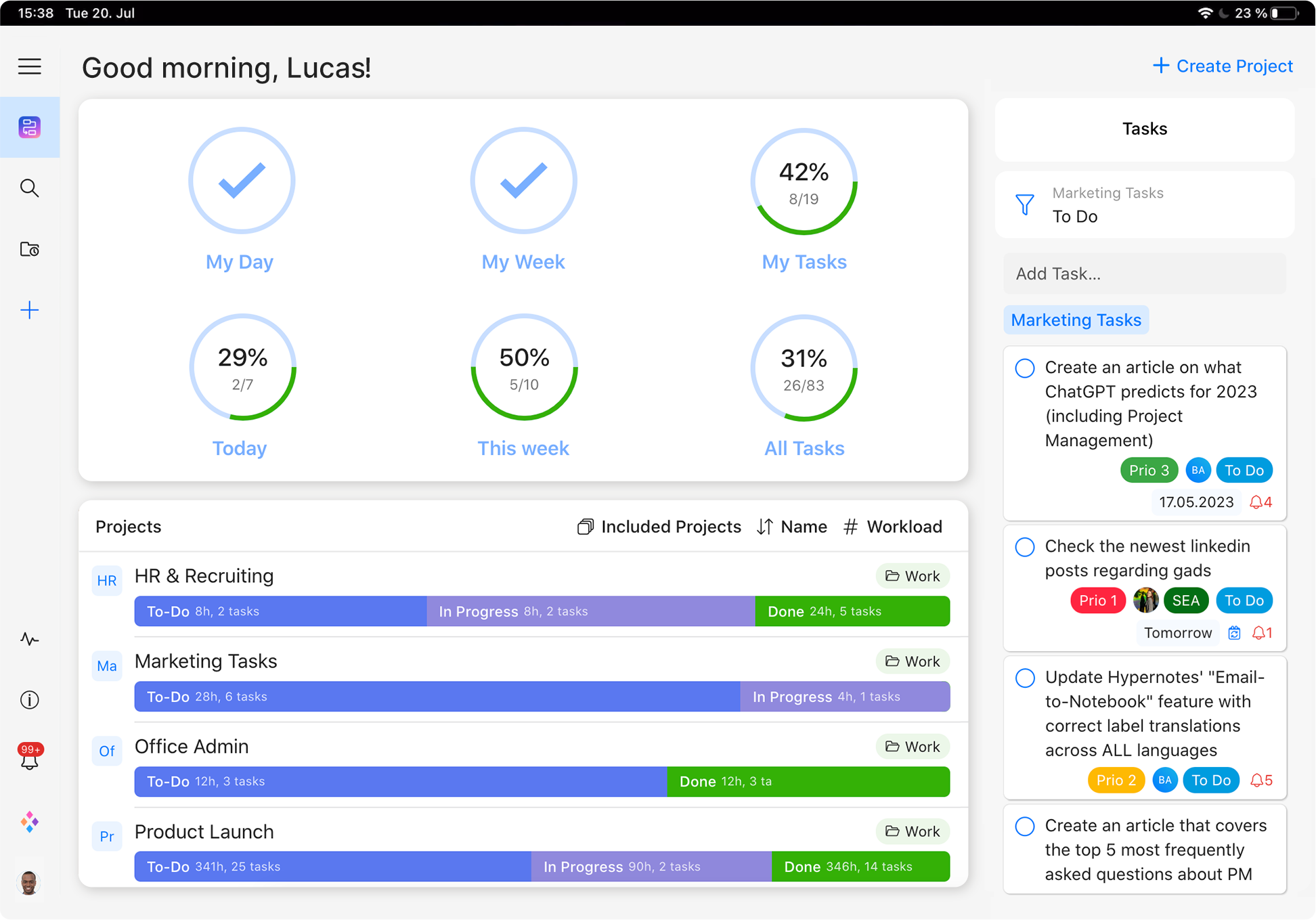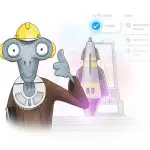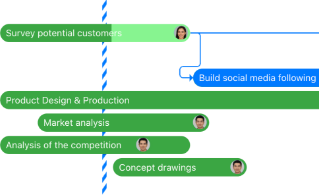8 Management Rules & Habits To Leave In 2021
Covid-19 and the home office have changed the management game.

As Omicron teases both the people and their governments with returning to the “old normal”, we take time to look back and see where exactly we landed after this 2-year wild ride.
The Wild Ride
To be honest, figuring out where we are right now is not an easy task. Stuck somewhere between the old ways, and the almost tangible sci-fi future that seemed decades away just two years ago, it’s a challenge to figure out how to move on if you’re not sure what your starting point is.
To see what our next step is in the managerial world, we need to figure out this roller-coaster that began sometime in early 2020. And the best way to do that is to take a backward glance and assess the tempo in which we saw changes introduced, solutions developed and implemented, and how we overcame and adapted. The tempo is the key indicator of how well we actually did!

So, what has changed? Well, a lot of things actually: we kept our boats on the water in spite of new, hybrid/remote work arrangements. We changed our recruitment practices to reflect this, which opened up a huge talent pool. We used new tech every step of the way and made the future come to us.
And all this has changed managerial practices – we can debate whether for better or for the worse, but without a doubt forever. All levels of management, vertical and horizontal, have seen changes in how they oversee and coordinate their teams. Right now, as we’ve stepped into 2022, it’s time to see how we can be even more productive this year than we were the last!
Managing Tech
Salvaging vs. Planning
First and foremost, in order to keep up the good management we’ve seen during the last two years, managers need to keep up with the latest technological developments. This means that simply searching for a solution for a problem that you’ve identified is so last year. Also, implementing a new piece of software, and calling it a day, is also done.
The manager of 2022 needs to be aware of the fact that new situations are going to keep on coming our way. While putting out fires worked well during the last two years, a more proactive approach is needed to remain competitive as we come out of the pandemic.
What to do? Keep up with the latest developments in technology that are applicable to your field of work. Delegate this task if time is short, but bear in mind that the new times require you to have an arsenal of potential solutions before you reach a roadblock. Planning, anticipating, and researching should be one of your primary concerns.

Discover the ultimate project management tool.
Sign up for free today!
Pen and Paper vs Tools
Managing a hybrid or a remote team came with its own set of challenges, and a very steep learning curve was one of the major ones. However, after an initial stumbling and tweaking, teams across the globe made it work.
Right, now it’s time to take things a step further. Managers provided their teams with means of work, but managerial tasks such as performance reviews still rely heavily on human assessment and data collection.
This in itself is not all bad, but – new tech solutions can be customized and upgraded. They can be used not only to entice collaboration and provide information but also to gather data and have it handy for supervisors. And keeping hand-written notes on major achievements of flops can be kept to a minimum.
Automation and the New Manager
Using tools to your advantage is one thing, but 2022 is promising to take things another step further, automating even more repetitive tasks for all levels of management. Since different approaches to scheduling and task completion monitoring, as well as collaborations, have all proven to be a success, it’s time to have a look at what’s next.
Providing performance feedback based on gathered data is one new direction; enabling quicker and easier peer-to-peer connections within teams is another. Research suggests that as much as 65% of repetitive tasks currently done by any level of management could be automated by 2025!
So, where does that leave companies? Does it mean that lay-offs are inevitable, or is it time to re-imagine the role of a manager/team leader? And in this new arrangement, what will the role of a manager be? One idea is that managers will inevitably need to broaden their skill sets, to make sure they’re ready to take care of their employees more, and manage their responsibilities and tasks less.
Flexible and Hybrid No Longer a Novelty
How you treat flexible work hours and remote or hybrid work arrangements is also bound to change. Technology has come so far in the last two years alone, that these once-before perks are now actually the norm.
As more and more candidates will expect this to be the norm, managers will be faced with the requirement to keep their eye on the ball regarding the best ways to manage their teams. Implementing strategies and tools that can keep up with teams that come from around the world is another major challenge here.
As challenging as it may be, managers will need to be the reference point for their teams. This means leading by example in the implementation of new solutions; it also means you need to use tech to connect to your people, as paradoxical as that may seem. Cameras on, mics on, and try to use technology to get as close as you can to the real thing.
Managing People
Manager or Moderator?
As software removes the need to do or monitor repetitive tasks, time frees up for managers to actually become facilitators or moderators within their teams. This is a trend that swept education like a storm some 20 years ago and is now on the horizon for team leaders as well.
With data collection and report drafting out of the picture, and with changing trends in candidate expectations, it’s time to reinvent the role of the manager. To serve as an integrative factor for their team, the manager of 2022 will need to put in the effort to make their team homogenous and tight-knit.
This can happen by engineering dedicated team events, establishing and nurturing a sense of purpose and belonging. If done correctly, a manager will be a moderator leading their people to understand the meaning behind their work, to know their peers inside-out, and to drive out the best of each other.
Money’s No Longer the Be-All-End-All
As times shift, so do the people. With Millenials making up a very big chunk of the workforce, managers need to re-imagine the job perks that attract and retain workers. Financial incentives are great, but they’re no longer the icing on the cake.
Managers need to understand that, in the aftermath of the pandemic, people are looking at new ways to establish their work/life balance. This means that the most coveted job perks are no longer the ones with the most zeroes; things like flexible, even shorter working hours come to the spotlight.
On top of that, we all need to accept the fact that turnover is going to increase with time. With access to a global talent pool, workers also gained access to a global job pool and will take advantage of arising opportunities. Maybe the time has come to stop fighting that.

A New Perspective on Wellness and Purpose
As the role of the manager changes, they need to address issues that were once on the backburner. At the beginning of the wild ride, this was managing expectations and mental health. Tech solutions and some creative ideas took care of that.
Now it’s time to address other wellness issues. Sitting is becoming the new smoking, and much can be done about that – from workplace design to habit formation. Managers have a key role here, in establishing good practices among their – sometimes remote – teams.
Another thing is purpose: gone are the days of leaving your political stance and personal beliefs at the office door. People now bring these along and are sometimes eager to talk. What’s more, employees now want their employers to take a stand on societal and other current issues. This, combined with increased diversity and inclusivity, gives the new generation of workers a sense of purpose – and the brand-new role of Chief Purpose Officer is looming around the corner.
Fairness and Equity 2.0
New research numbers are suggesting that the distribution of labor in work-from-home schemes is not random. There are clearly identified groups that prefer working from home and working from the office.
This could spell problems for DE&I, as some people are bound to be left out of important discussions and decisions. With a lack of detailed management in this respect, the problematic wage gaps might broaden, so it’s the managers’ responsibility to make sure this doesn’t happen.
The “new normal” is also flushing out new questions, such as who gets the opportunity to work away, the stance on remote workers moving to cheaper locations, the questions of financial incentives for new hires and workers with kids, etc. Since office talk is now dominated by big questions, managers need to carefully manoeuvre through concerns such as these if they want to keep everyone happy.

What’s Next?
How you decide to manage the “return to work” process might be the ultimate test. Whether your teams are returning to their previous workloads, or you’re asking for a return to the office, make sure you’re familiar with emerging trends and your labor’s preferences.
The Great Resignation has set the ball rolling for a number of new trends, including the re-imagining of the workplace and the world of work in general. As it slows down, it’s time to address the very things that sparked it. The disruption of the world of work is now in motion, and there’s no stopping it; carefully monitoring the trends is a sure way of streamlining the process and making sure it arrives at a place where it benefits all stakeholders.
The novel workplace will be burdened with big questions. This is not endemic to the workplace – vaccination mandates, political decisions, and other related issues have crept into table talk and bedside chat. This will broaden to sustainability issues and other emerging concerns – with Millennials being the drivers, and their interests in the subject moving from their shopping choices to employer choices.
Managers have a lot on their plates. And the bad news is that this is not going to change. However, the good news is that the role itself is going through an identity crisis; as the re-imagination of work has sparked great things, there’s no reason to believe that the same won’t happen with management.
Author: Derek Jones
Derek spearheads key initiatives at Deputy, a global workforce management platform for employee scheduling, timesheets and communication. With a focus on Healthcare, Derek helps business owners and workforce leaders simplify employment law compliance, keep labor costs in line and build award-winning workplaces. Derek has over 16 years of experience in delivering data-driven sales and marketing strategies to SaaS companies like MarketSource and Griswold Home Care.
Learn more about the Zenkit Suite in our Knowledge Base, or schedule a quick personal demo to see how the Suite can help you cultivate healthy habits when leading teams remotely or in-house.

FREE 20 MIN. CONSULTATION WITH A PROJECT MANAGEMENT EXPERT
Wanna see how to simplify your workflow with Zenkit in less than a day?
Book a Live Demo